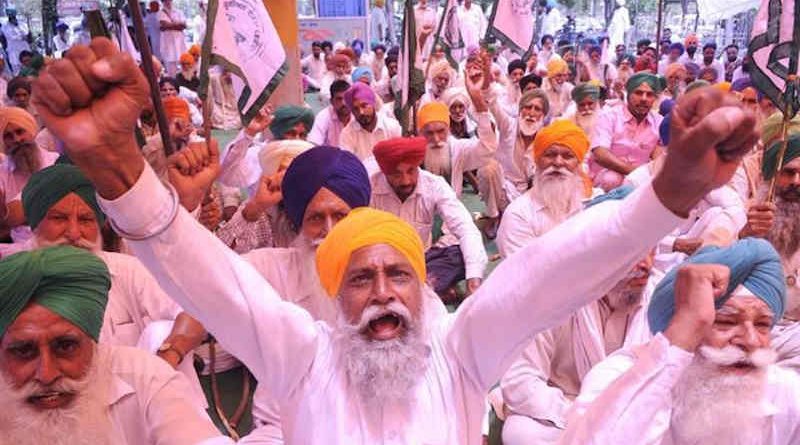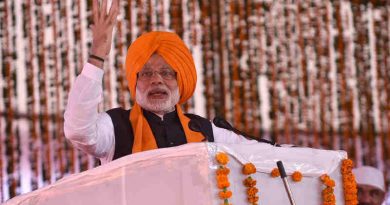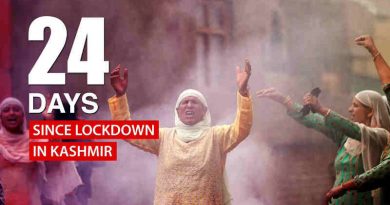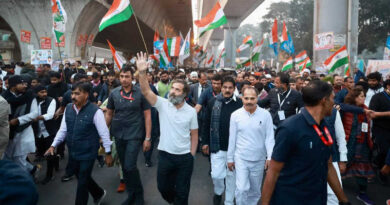Protesting Farmers Debunk Modi Govt’s Covid Pretext to Enter Delhi
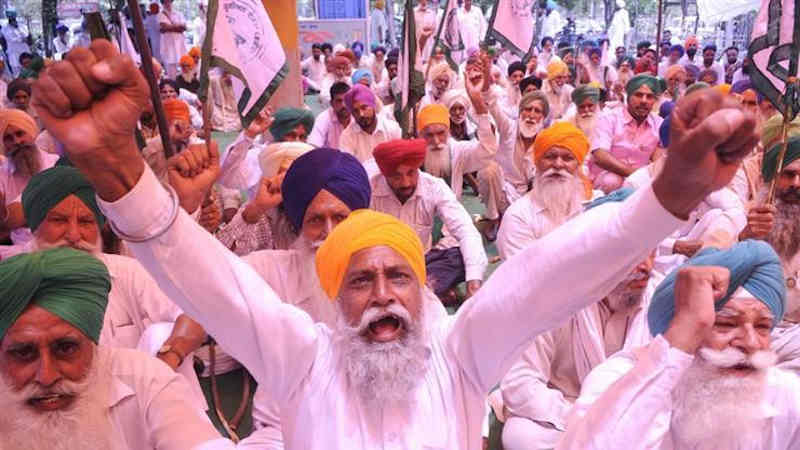
Protesters argue that the Modi government is using the coronavirus cover to suppress dissent while the government has completely failed to contain the contagion which is spreading rapidly in the country.
By Rakesh Raman
After getting hit with teargas shells and water cannons by the government-backed security forces, hundreds of thousands of farmers – mainly from Punjab – entered New Delhi to protest in the national capital.
Framers had planned to hold demonstrations on November 26-27 against the Indian government headed by Prime Minister (PM) Narendra Modi. But the government allowed them to enter only on November 27 and protest near the outskirts of Delhi in the Burari area.
Delhi Police confirmed the permission through a tweet, saying, “After discussion with farmer leaders, the protesting farmers have been permitted inside Delhi to hold peaceful protest at Nirankari Ground, Burari. Delhi Police appeals them to maintain peace.”
After discussion with farmer leaders, the protesting farmers have been permitted inside Delhi to hold peaceful protest at Nirankari Ground, Burari. Delhi Police appeals them to maintain peace @CPDelhi @LtGovDelhi @PMOIndia @HMOIndia #WearAMask #FarmersProtest#Unite2FightCorona
— #DilKiPolice Delhi Police (@DelhiPolice) November 27, 2020
However, some farmers suggest that they should not assemble in the enclosed Burari ground because it can be a government’s ploy to drag all the visiting farmers at one location and detain them there.
Moreover, their peaceful demonstrations at one protest site will not have any impact on the Modi government which will simply ignore them. They give the example of anti-corruption leader Anna Hazare who – along with thousands of protesters – kept protesting in Delhi a few years ago, but the government ignored him.
As an alternative to their Burari demonstrations, farmers are considering to block all the entry roads to Delhi to cut off the national capital from the rest of the country. They feel with this kind of move they can make a forceful impact on the government to get their demands accepted.
PROTEST AND CORONAVIRUS PRETEXT
Earlier, police and security forces of the Modi government had blocked all the entry routes to Delhi and used force against farmers when they tried to pass through Haryana, an Indian state ruled by Modi’s Bharatiya Janata Party (BJP).
Farmers are participating in a 2-day “Delhi Chalo” protest march against contentious farm laws introduced by the Modi government in September. Although Punjab farmers have been protesting in different parts of the state for the past 2 months, the Modi government did not address their demands.
While it was supposed to be an all-India protest, in the absence of sufficient participation from other states, the Punjab farmers came to Delhi.
Earlier, with a warning message, Delhi Police – which is controlled by the Modi government– had denied entry permission to farmers with the excuse that the farmers’ gathering will spread coronavirus in Delhi.
The protesters argue that the Modi government is using the coronavirus cover to suppress dissent while the government has completely failed to contain the contagion which is spreading rapidly in the entire country.
While there is hardly any attempt by the government to enforce coronavirus restrictions related to safe distancing and wearing of masks, ironically the government becomes very strict about coronavirus when it has to stop street demonstrations by peaceful protesters.
It is being seen that Modi is introducing anti-people laws during the coronavirus pandemic when people are not being allowed to come on streets to protest against the government.
Earlier, the Modi government had used Delhi Police to impose coronavirus restrictions on protesters who were protesting in Delhi’s Shaheen Bagh against the Citizenship Amendment Act (CAA), National Register of Citizens (NRC), and National Population Register (NPR) announced by the Modi government.
The Shaheen Bagh protest had ended abruptly in March this year (2020). Similarly, the Modi government is trying to scuttle farmers’ protest under the pretext of coronavirus.
As the Modi government is arbitrarily using central laws to authoritatively suppress all types of dissent in the country, it is expected that the protesting farmers will also be implicated in false cases to detain them.
There is a possibility that the Modi government will unleash police brutality on protesting farmers and may use draconian laws including sedition and Unlawful Activities (Prevention) Act or UAPA against some farmers and their leaders. Farmers should be prepared for such an eventuality.
CONTENTIOUS FARM LAWS
Of late, the Modi government has passed 3 connected Bills to make them laws. These are: the Farmers’ Produce Trade and Commerce (Promotion and Facilitation) Bill, Farmers (Empowerment and Protection) Agreement of Price Assurance and Farm Services Bill, and the Essential Commodities (Amendment) Bill.
Currently, farmers in India are protesting against the Modi government and the new laws. Farmers fear that these laws will deprive them of their farming rights and they will lose their lands which will be grabbed by Modi’s capitalist friends.
Although farmers across the nation oppose Modi government’s decision, the epicenter of the movement is Punjab which contributes the lion’s share to the Indian agriculture sector.
The Modi government has refused to withdraw the farm laws and Modi has baselessly accused the opposition parties of misleading farmers who are protesting against these laws.
With the evil aim to discredit the protesting farmers, Modi and his party colleagues are calling them separatists and agents of opposition parties including Congress which runs the government in Punjab.
While the Modi government is not expected to concede, the farmers have decided to stay united in their fight against three farm laws and the Electricity (Amendment) Bill 2020 proposed by the government.
Farmers belonging to nearly 250 farm organizations are expected to continue their struggle under the banner of All India Kisan Sangharsh Coordination Committee (AIKSCC) which is an umbrella organization representing millions of farmers.
In a tweet, AIKSCC said that in response to its representation, “PM Modi responded with Police, Arrests, Detention, Barricades, Barbed Wire, Water Canon, and Brutal Repression.”
The ongoing protests are against the farm laws. But in the absence of any political opposition to the Modi government and to stop Modi’s autocratic strides, people expect the farmer unions to play the role of the main opposition group.
Farmers can lead the struggle to restore democratic culture in the country which is reeling under unemployment, sickness, corruption, and lawlessness inflicted by the Modi government.
By Rakesh Raman, who is a national award-winning journalist and social activist. He is the founder of a humanitarian organization RMN Foundation which is working in diverse areas to help the disadvantaged and distressed people in the society.


